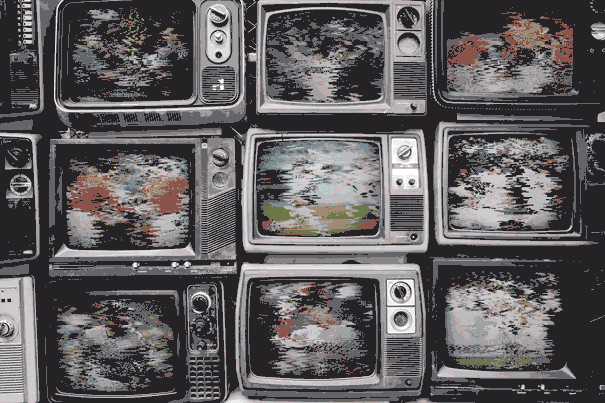Critic’s Pick: TV Picks: Foo Fighters, twins, Simpsons, ‘Web Therapy,’ more
“Foo Fighters: Sonic Highways” (HBO, Fridays). It’s often the case nowadays that a big-time recording artist or act will accompany a new release with a making-of documentary, and is sometimes the case that that documentary, which is, after all, a kind of commercial, will make its way to some respectable television outlet that will present it as something above and apart from an ad. (Just as I finished writing that sentence, the United Parcel Service delivered a DVD screener of “Lost Songs: The Basement Tapes Continued,” a “Showtime® Documentary” set to air Nov. 21; this is like that.) But “Sonic Highways” is something different and literally more -- it’s an eight-part series, created and directed by Foo Fighters founder Dave Grohl, who previously directed the 2013 documentary feature “Sound City,” about a fabled San Fernando Valley recording studio, to which “Sonic Highways” is a kind of peripatetic sequel. And although it features the band recording and performing songs from its about-to-drop new album, it is more generally about the making of music and the making of musicians, as the ineluctable product of influences and experiences; and the historical sound-culture of the several cities in which the Foo Fighters traveled to make what I still call their new “record”; and the creation of community and of character.
The series moves to a new city each week -- Chicago; Washington, D.C.; Austin, Texas; Nashville; Los Angeles; Seattle; New Orleans; and New York are the stops -- and from one legendary studio to another; in each, the band, on a reality-show timetable, works up a song meant in some way to reflect the city they’re in. (The Chicago and Washington episodes have been sent for review, and both are splendid.) Grohl piles a lot into each hour, darting back and forth between subjects and between now and then in a way that seems random only if you stop to think about it, and once you think about it doesn’t seem random at all.
The Chicago episode brings in as accompanying main subjects blues guitarist Buddy Guy; Cheap Trick (Rick Nielsen adds baritone guitar to the series’ first recording); and upright producer Steve Albini, who refused a percentage on Nirvana’s “In Utero” on moral grounds and in whose Electrical Audio the Foos lay down their Chicago song, with “Nevermind” producer Butch Vig at the mixing board. (Grohl played drums in Nirvana, do I need to say?) The Washington, D.C., episode takes the director back to his own musical youth -- “Whenever I felt lost I would go back to Virginia to my mother’s house to the room where I grew up, and it just pulled everything back into perspective” -- and features the Bad Brains;musician and Dischord Records owner Ian MacKaye (Fugazi, Minor Threat); a look at the Go Go scene via the venerable Trouble Funk; and the organizers of the “Revolution Summer” of 1984. There’s a moral component to both episodes not surprising from someone who grew up in punk rock -- especially in D.C. punk rock -- that, again, lifts “Sonic Highways” above other self-promotional music documentaries. It’s not a vanity project. (More of a lack of vanity project, to the extent training a camera on yourself can qualify.)
For Grohl -- at 45, a rock elder statesman and as much a fan as ever -- the music community includes not just players and producers, record-shop proprietors, club owners and motivated fans. Narrating, he sometimes overstates his case to sell his premise, but rock is often an art of overstatement -- I was about to write “and no one ever died from an overdose of sincerity,” but I’m not sure that’s true. In any case, what he’s made here is exciting, beautiful and moving.
“Twin Sisters” (PBS, Monday). Mona Friis Bertheussen’s documentary film, presented as part of the series “Independent Lens,” tells the story of Alexandra and Mia, two 8-year-old Chinese orphans -- identical twins, though officials denied they were even related -- independently adopted as infants by an American and a Norwegian couple. While still in China, a series of stranger-than-fiction coincidences brought the families, who ordinarily would have never met, into contact, their new daughters dressed in identical red gingham dresses purchased in countries half a world away; DNA testing later confirmed what the parents, who kept in touch, suspected, and the girls were raised with the knowledge of a sister they might one day meet. If Bertheussen doesn’t delve too deeply into questions of nature and nurture -- this is a basically happy film, about bonds born of circumstance and bonds that transcend circumstance -- she provides plenty of contrast between the girls’ lives and lifestyles, and tacit commentary on different types of abundance: Alexandra in her remote, fjord-side village, where she rambles at will among horses and chickens in a dramatic landscape, and Mia in Sacramento, in a busy world of pink and plastic and scheduled play: “We live in a nice neighborhood,” she says, “but my parents don’t let me go out on my own.” The film feels weighted toward Alexandra, in part because the filmmaker is Norwegian -- she was there to film their second reunion and Mia’s first trip to Norway -- but also because Alexandra seems to feel the separation more keenly. Bertheussen unnecessarily resorts to terrible music and occasional bit of slow motion to pump up the emotional volume; but the material speaks for itself, the faces tell you everything you need to know.
“The Simpsons: Treehouse of Horror XXV” (Fox, Sunday). “The Simpsons” started its life with a Christmas episode, but Halloween is the holiday the series, with its inverted social mores, was made to hail. This non-repeating October tradition returns for a 25th edition with its usual blend of film takeoffs, hellish visitations (and visits to Hell), pop-cultural cameos (howdy, Hot Stuff!), digs at Fox and self-reflexive metafictions. It is also the one time in the roiling year that the show, divided for the occasion into three stand-alone mini-episodes rooted in the characters but not the continuity, tells its stories at old-time cartoon length. An oddly comforting theme runs through these comically gruesome, gruesomely comical specials: That the worst thing you can imagine may be better than the life you’re already living. Inspirational dialogue (Homer to Bart): “You went to hell and came back a winner -- like Jesus.”
“Web Therapy” (Showtime, Wednesdays); “The Birthday Boys” (IFC, Fridays). Two smart and funny series whose new seasons I haven’t had time to preview return this week. “Web Therapy” is Lisa Kudrow’s modestly appointed, star-studded deceptively complex series in the form of Skype conversations, with Kudrow as a hopelessly hapless online therapist. (As psychiatrist shows go, this has it all over “In Treatment” for my $100 an hour.) Big-name guest stars this year include Jon Hamm, Allison Janney, Gwyneth Paltrow, Jesse Tyler Ferguson, Craig Ferguson, Calista Flockhart, Rashida Jones, Billy Crystal, Lily Tomlin, Victor Garber and Matthew Perry, leaving only Jennifer Aniston of Kudrow’s “Friends” friends yet to appear here. “The Birthday Boys,”returning for a sophomore season on IFC, features the eponymous Los Angeles-based comedy group in a lateral-thinking sketch comedy, co-produced by and sometimes featuring Bob Odenkirk, which moves from idea to stranger idea in a way reminiscent of Monty Python, but with its own 21st-century California flavor.
Follow Robert Lloyd on Twitter @LATimesTVLloyd
More to Read
The complete guide to home viewing
Get Screen Gab for everything about the TV shows and streaming movies everyone’s talking about.
You may occasionally receive promotional content from the Los Angeles Times.







